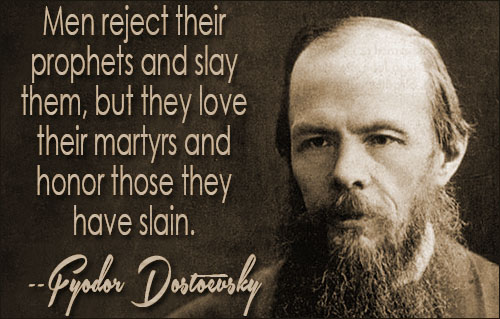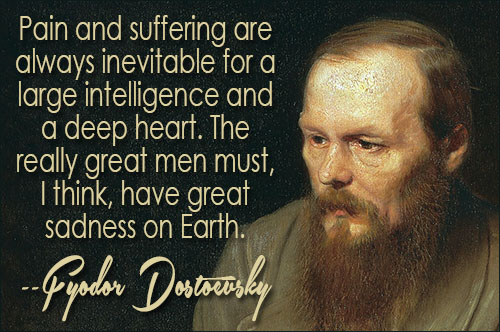
Dostoyevsky on the Heart vs. the Mind and How We Come to Know Truth
“Emotions are not just the fuel that powers the psychological mechanism of a reasoning creature,” Martha Nussbaum — one of the most insightful and influential philosophers of our time — asserted in her terrific treatise on the intelligence of the emotions. “They are parts, highly complex and messy parts, of this creature’s reasoning itself.” It’s an idea proposed — and resisted — for centuries, if not millennia. “The heart has its reasons, which reason does not know,” Blaise Pascal wrote in contemplating intuition and the intellect in the 17th century.
But perhaps the most beautiful meditation on this abiding tug-of-war between reason and emotion comes not from a hoary philosopher but from a teenage boy — one who would grow up to become the greatest psychological writer of all time.

Decades before he found the meaning of life in a dream and was fortunate to find himself in one of history’s most beautiful loves, Fyodor Dostoyevsky (November 11, 1821–February 9, 1881) tussled with the interplay of the heart and the mind in how we come to know truth. In an 1838 letter to his brother Mikhail, penned shortly before his seventeenth birthday and included in Letters of Fyodor Michailovitch Dostoyevsky to His Family and Friends (public library), Dostoyevsky accuses his brother of being apt to “philosophize like a poet” and writes:
To know more, one must feel less, and vice versa… Nature, the soul, love, and God, one recognizes through the heart, and not through the reason. Were we spirits, we could dwell in that region of ideas over which our souls hover, seeking the solution. But we are earth-born beings, and can only guess at the Idea — not grasp it by all sides at once. The guide for our intelligences through the temporary illusion into the innermost centre of the soul is called Reason. Now, Reason is a material capacity, while the soul or spirit lives on the thoughts which are whispered by the heart. Thought is born in the soul. Reason is a tool, a machine, which is driven by the spiritual fire. When human reason … penetrates into the domain of knowledge, it works independently of the feeling, and consequently of the heart.
He comes full-circle to the divergent ways in which poetry and philosophy bring us into contact with truth, both necessary but one, in his view, superior:
Philosophy cannot be regarded as a mere equation where nature is the unknown quantity! Remark that the poet, in the moment of inspiration, comprehends God, and consequently does the philosopher’s work. Consequently poetic inspiration is nothing less than philosophical inspiration. Consequently philosophy is nothing but poetry, a higher degree of poetry!
Complement this particular fragment of Letters of Fyodor Michailovitch Dostoyevsky to His Family and Friends with British economic theorist and philosopher E.F. Schumacher, writing a century and a half later, on how to see with the eye of the heart, then revisit Dostoyevsky on why there are no bad people and his beloved wife on the secret to a happy marriage.


A story is told of Coleridge who had listened to a vehement argument by a visitor against religious instruction of the young. His caller concluded by stating his determination not to prejudice his children in any form of religion, but to allow them at maturity to choose for themselves. Coleridge made no immediate comment, but shortly afterwards asked his visitor if he would like to see his garden. Saying that he would, Coleridge led his guest to a strip of lawn overgrown with weeds. "Why this is no garden. It is nothing but a weed-patch." "Oh," replied Coleridge, "that is because it has not come to its age of discretion. The weeds you see have taken the opportunity to grow and I thought it unfair of me to prejudice the soil toward roses and strawberries."



No comments:
Post a Comment